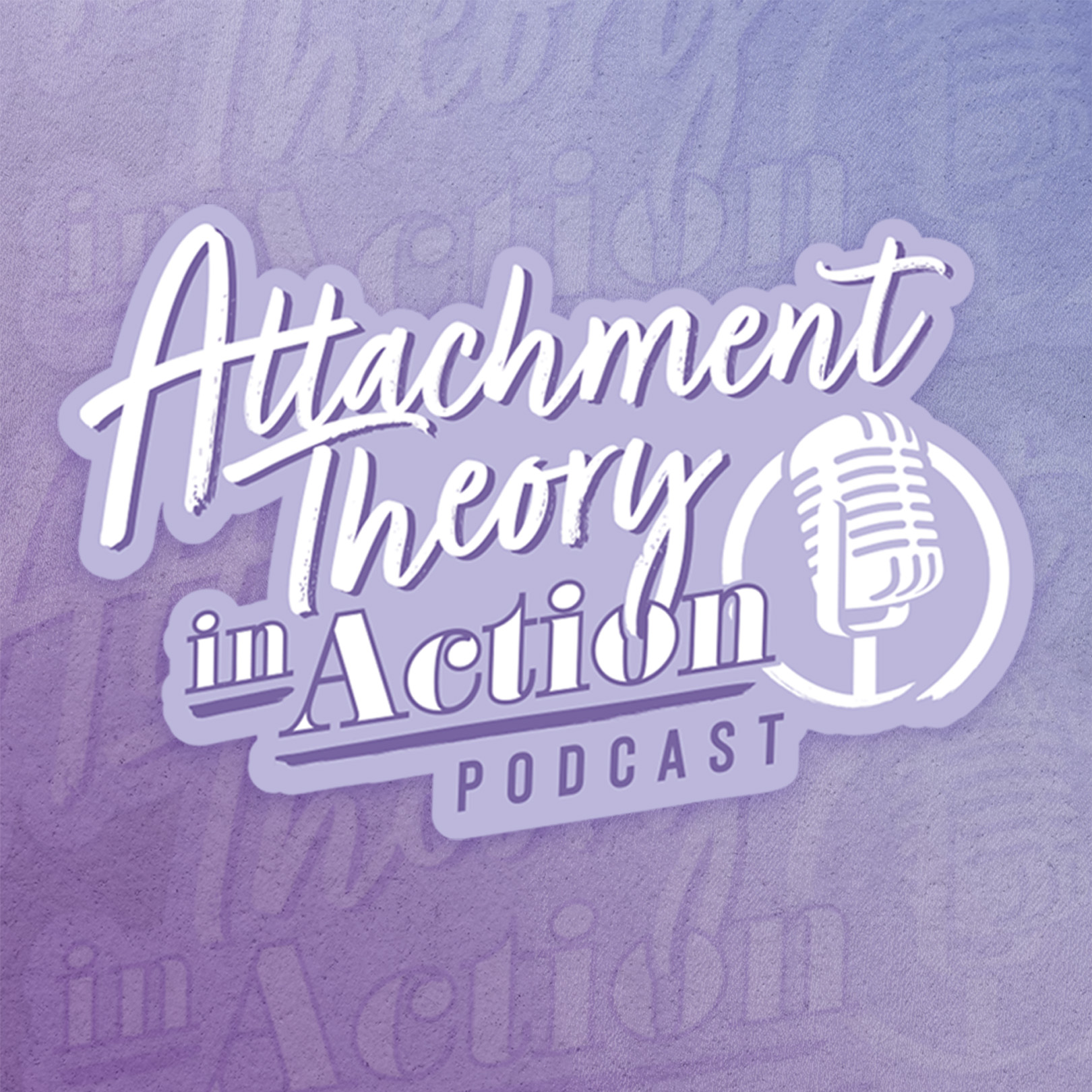
If you work with kids, families, or clients impacted by trauma, you’re in the right place.
The Attachment Theory in Action Podcast is your go-to podcast for real conversations about trauma, attachment, and making a meaningful difference in the lives of those you serve.
Every other week, host Kirsty Nolan sits down with experts in attachment, trauma, and child development to talk about the stuff that really matters—how trauma shapes behavior and development, how to build stronger relationships, and how to bring these insights into your daily work.
Looking for practical tips you can actually use? Wondering how to better support your clients? Curious about the latest research in attachment and trauma? We’ve got you covered.
With nearly 2 million downloads, over 300 episodes, and a loyal community of listeners, the Attachment Theory in Action Podcast helps professionals like you grow and learn—all in under an hour, every other week.
Whether you’re a therapist, counselor, social worker, parent, or simply someone who cares deeply about helping others, this is a space for learning, growth, and inspiration. Hit follow, and let’s dive into the work that changes lives.
The Attachment Theory in Action Podcast is brought to you by Chaddock. Chaddock equips thousands of educators, clinicians, and helping professionals on the latest trauma-informed, attachment based strategies. Visit www.Chaddock.org/learn to learn more.
Want to jump behind the mic and share your expertise? Visit AttachmentTheoryInAction.com to fill out our form to be a guest.
If you work with kids, families, or clients impacted by trauma, you’re in the right place.
The Attachment Theory in Action Podcast is your go-to podcast for real conversations about trauma, attachment, and making a meaningful difference in the lives of those you serve.
Every other week, host Kirsty Nolan sits down with experts in attachment, trauma, and child development to talk about the stuff that really matters—how trauma shapes behavior and development, how to build stronger relationships, and how to bring these insights into your daily work.
Looking for practical tips you can actually use? Wondering how to better support your clients? Curious about the latest research in attachment and trauma? We’ve got you covered.
With nearly 2 million downloads, over 300 episodes, and a loyal community of listeners, the Attachment Theory in Action Podcast helps professionals like you grow and learn—all in under an hour, every other week.
Whether you’re a therapist, counselor, social worker, parent, or simply someone who cares deeply about helping others, this is a space for learning, growth, and inspiration. Hit follow, and let’s dive into the work that changes lives.
The Attachment Theory in Action Podcast is brought to you by Chaddock. Chaddock equips thousands of educators, clinicians, and helping professionals on the latest trauma-informed, attachment based strategies. Visit www.Chaddock.org/learn to learn more.
Want to jump behind the mic and share your expertise? Visit AttachmentTheoryInAction.com to fill out our form to be a guest.
Episodes
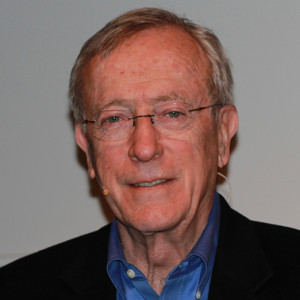
Tuesday Oct 08, 2019
Tuesday Oct 08, 2019
Karen welcomes Dr. Robert S. Marvin for part one of their conversation on research and clinical applications of attachment theory. Part two will be released Tuesday, October 15th at noon Eastern.
Dr. Bob Marvin was an undergraduate student and research associate with Mary D. Ainsworth at The Johns Hopkins University. He received his Ph.D. in developmental and clinical psychology from the University of Chicago in 1972. After completing a postdoctoral fellowship at the Institute of Child Development, University of Minnesota he began teaching at the University of Virginia, where he is currently Professor Emeritus in the School of Medicine and Research Professor in the Department of Psychology. He is also Director of the Mary D. Ainsworth Child-Parent Attachment Clinic in Charlottesville, Virginia. From 1998-2006, Bob was the Principal Investigator on federally-funded projects that developed and tested the Circle of Security® version of Attachment Theory, and The Circle of Security® Intervention protocol.
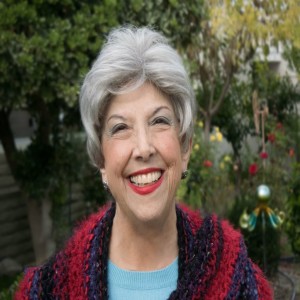
Tuesday Oct 01, 2019
Sharon Roszia: The Seven Core Issues in Adoption and Permanency - Part 2
Tuesday Oct 01, 2019
Tuesday Oct 01, 2019
Karen Buckwalter concludes her conversation with Sharon Roszia, M.S., about Roszia's Seven Core Issues in Adoption and Permanancy.
Sharon Roszia entered the field of foster care and adoption in 1963 after earning her Bachelors in Social Work and Masters in Psychology from Arizona State University. She has worked consistently in both public and private agencies, always focusing on child welfare issues. Along with her colleague, Deborah Silverstein L.C.S.W., she developed the Seven Core Issues in Adoption. Sharon lives what she does professionally as a foster parent, adoptive parent and a parent by birth.

Tuesday Sep 24, 2019
Sharon Roszia: The Seven Core Issues in Adoption and Permanency - Part 1
Tuesday Sep 24, 2019
Tuesday Sep 24, 2019
Karen Buckwalter welcomes Sharon Roszia, M.S., as they discuss Roszia's Seven Core Issues in Adoption and Permanancy.
Sharon Roszia entered the field of foster care and adoption in 1963 after earning her Bachelors in Social Work and Masters in Psychology from Arizona State University. She has worked consistently in both public and private agencies, always focusing on child welfare issues. Along with her colleague, Deborah Silverstein L.C.S.W., she developed the Seven Core Issues in Adoption. Sharon lives what she does professionally as a foster parent, adoptive parent and a parent by birth.

Tuesday Sep 17, 2019
Tuesday Sep 17, 2019
Karen Buckwalter concludes her conversation with Stan Tatkin, PsyD, MFT, about examining couples and romantic relationships through the lens of attachment theory.
Tatkin is a clinician, researcher, teacher, and developer of A Psychobiological Approach to Couple Therapy® (PACT). He has a clinical practice in Calabasas, CA, and developed the PACT Institute for the purpose of training other psychotherapists to use this method in their clinical practice. Dr. Tatkin also teaches and supervises family medicine residents at Kaiser Permanente, Woodland Hills, CA, and is an assistant clinical professor at the UCLA David Geffen School of Medicine, Department of Family Medicine. Dr. Tatkin is on the board of directors of Lifespan Learning Institute and serves as a member on Relationships First Counsel, a nonprofit organization founded by Harville Hendrix and Helen LaKelly Hunt.
Dr. Tatkin received his early training in developmental self and object relations (Masterson Institute), Gestalt, psychodrama, and family systems theory. His private practice specialized for some time in treating adolescents and adults with personality disorders. More recently, his interests turned to psycho-neurobiological theories of human relationship, and applying principles of early mother-infant attachment to adult romantic relationships.
Dr. Tatkin was a primary inpatient group therapist at the John Bradshaw Center, where among other things, he taught mindfulness to patients and staff. He was trained in Vipassana meditation by Shinzen Young, and was an experienced facilitator in Vipassana. He was also trained by David Reynolds in two Japanese forms of psychotherapy, Morita and Naikan. Dr. Tatkin was clinical director of Charter Hospital’s intensive outpatient drug and alcohol program, and is a former president of the California Association of Marriage and Family Therapists, Ventura County chapter. He is a veteran member of Allan N. Schore’s study group. He also trained in the Adult Attachment Interview through Mary Main and Erik Hesse’s program out of UC Berkeley.

Tuesday Sep 10, 2019
Tuesday Sep 10, 2019
Karen Buckwalter welcomes Stan Tatkin, PsyD, MFT, for part one of their conversation about examining couples and romantic relationships through the lens of attachment theory.
Tatkin is a clinician, researcher, teacher, and developer of A Psychobiological Approach to Couple Therapy® (PACT). He has a clinical practice in Calabasas, CA, and developed the PACT Institute for the purpose of training other psychotherapists to use this method in their clinical practice. Dr. Tatkin also teaches and supervises family medicine residents at Kaiser Permanente, Woodland Hills, CA, and is an assistant clinical professor at the UCLA David Geffen School of Medicine, Department of Family Medicine. Dr. Tatkin is on the board of directors of Lifespan Learning Institute and serves as a member on Relationships First Counsel, a nonprofit organization founded by Harville Hendrix and Helen LaKelly Hunt.
Dr. Tatkin received his early training in developmental self and object relations (Masterson Institute), Gestalt, psychodrama, and family systems theory. His private practice specialized for some time in treating adolescents and adults with personality disorders. More recently, his interests turned to psycho-neurobiological theories of human relationship, and applying principles of early mother-infant attachment to adult romantic relationships.
Dr. Tatkin was a primary inpatient group therapist at the John Bradshaw Center, where among other things, he taught mindfulness to patients and staff. He was trained in Vipassana meditation by Shinzen Young, and was an experienced facilitator in Vipassana. He was also trained by David Reynolds in two Japanese forms of psychotherapy, Morita and Naikan. Dr. Tatkin was clinical director of Charter Hospital’s intensive outpatient drug and alcohol program, and is a former president of the California Association of Marriage and Family Therapists, Ventura County chapter. He is a veteran member of Allan N. Schore’s study group. He also trained in the Adult Attachment Interview through Mary Main and Erik Hesse’s program out of UC Berkeley.
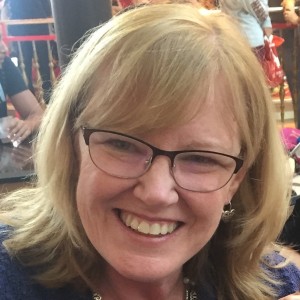
Tuesday Sep 03, 2019
Lori Thomas: The Importance of Therapy for Foster & Adoptive Families - Part 2
Tuesday Sep 03, 2019
Tuesday Sep 03, 2019
Karen Buckwalter welcomes Lori Thomas, MA, as they conclude their discussion on the importance of therapy for foster and adoptive families. Lori Thomas is a counselor in residency with Emmaus Family Counseling Center. Thomas is a co-author on The Jonathan Letters with Michael Trout in 2005, and a contributing author on the Attachment Theory in Action: Building Connections Between Children and Parents book in 2018. Both books are available on tkcchaddock.org.
Lori works from an attachment-focused perspective. With the understanding that attachment develops in early childhood, and dysfunctional patterns may develop based on early experiences, Lori believes that nurturing healthy attachments is integral to the healing process. This attachment-focused work is especially geared towards counseling children and their parents. Children who have experienced trauma, are in the foster care system, or are adopted are some of her favorite clients.
Lori has an extensive history working with children who have experienced trauma, beginning as a foster and adoptive parent, which led to her interest in entering the field of counseling. Lori has completed many trainings, including a 40-hour Nurturing Attachments Postgraduate Training by Deborah Gray. She also earned certificates in Crisis Pregnancy Coaching through Light University. In addition to co-authoring The Jonathan Letters (2005), and contributing to Attachment Theory In Action, she is also a contributing author to The Hope-Filled Parent (2008), Hope for Healing (2011). She is an active advocate and public speaker on children’s issues. She is the mother of seven children, three through birth and four through adoption. She served on the Board of Directors of The Association for Treatment and Training in the Attachment of Children (ATTACh) for nine years. She lives in Northern Virginia with her husband, Paul, their youngest child, and two dogs.

Tuesday Aug 27, 2019
Lori Thomas: The Importance of Therapy for Foster & Adoptive Families - Part 1
Tuesday Aug 27, 2019
Tuesday Aug 27, 2019
Karen Buckwalter welcomes Lori Thomas, MA, for part one of their discussion on the importance of therapy for foster and adoptive families. Lori Thomas is a counselor in residency with Emmaus Family Counseling Center. Thomas is a co-author on The Jonathan Letters with Michael Trout in 2005, and a contributing author on the Attachment Theory in Action: Building Connections Between Children and Parents book in 2018. Both books are available on tkcchaddock.org.
Lori works from an attachment-focused perspective. With the understanding that attachment develops in early childhood, and dysfunctional patterns may develop based on early experiences, Lori believes that nurturing healthy attachments is integral to the healing process. This attachment-focused work is especially geared towards counseling children and their parents. Children who have experienced trauma, are in the foster care system, or are adopted are some of her favorite clients.
Lori has an extensive history working with children who have experienced trauma, beginning as a foster and adoptive parent, which led to her interest in entering the field of counseling. Lori has completed many trainings, including a 40-hour Nurturing Attachments Postgraduate Training by Deborah Gray. She also earned certificates in Crisis Pregnancy Coaching through Light University. In addition to co-authoring The Jonathan Letters (2005), and contributing to Attachment Theory In Action, she is also a contributing author to The Hope-Filled Parent (2008), Hope for Healing (2011). She is an active advocate and public speaker on children’s issues. She is the mother of seven children, three through birth and four through adoption. She served on the Board of Directors of The Association for Treatment and Training in the Attachment of Children (ATTACh) for nine years. She lives in Northern Virginia with her husband, Paul, their youngest child, and two dogs.
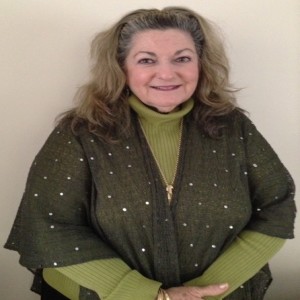
Tuesday Aug 20, 2019
Phyllis Cohen: The Building Blocks Program for Therapists - Part 2
Tuesday Aug 20, 2019
Tuesday Aug 20, 2019
Welcome to Attachment Theory in Action! Our podcast is dedicated to therapists, social workers, counselors and psychologists who are working with clients from an attachment-based perspective. Interviews are conducted with individuals who are doing clinical work as well as leading attachment theory researchers.
Karen Buckwalter concludes her discussion with Phyllis Cohen, Founder and Director of the New York Institute for Psychotherapy Training in Infancy, Childhood and Adolescence, on Cohen's Building Blocks program for therapists.
Dr. Cohen has developed the Building Blocks Program where she teaches and supervises therapists who work dyadically with birth mothers and young children in foster care at an agency in NYC. She has also been a volunteer doing assessments and writing affidavits in the Immigration and Asylum Seeker Project at NYU.
Dr. Cohen is an Adjunct Assistant Professor at NYU, and is in private practice in Brooklyn, New York.

Tuesday Aug 13, 2019
Phyllis Cohen: The Building Blocks Program for Therapists - Part 1
Tuesday Aug 13, 2019
Tuesday Aug 13, 2019
Welcome to Attachment Theory in Action! Our podcast is dedicated to therapists, social workers, counselors and psychologists who are working with clients from an attachment-based perspective. Interviews are conducted with individuals who are doing clinical work as well as leading attachment theory researchers.
Karen Buckwalter welcomes Phyllis Cohen,Founder and Director of the New York Institute for Psychotherapy Training in Infancy, Childhood and Adolescence, for part one of their discussion on Cohen's Building Blocks program for therapists. Part two will be released on Tuesday, August 20th.
Dr. Cohen has developed the Building Blocks Program where she teaches and supervises therapists who work dyadically with birth mothers and young children in foster care at an agency in NYC. She has also been a volunteer doing assessments and writing affidavits in the Immigration and Asylum Seeker Project at NYU.
Dr. Cohen is an Adjunct Assistant Professor at NYU, and is in private practice in Brooklyn, New York.
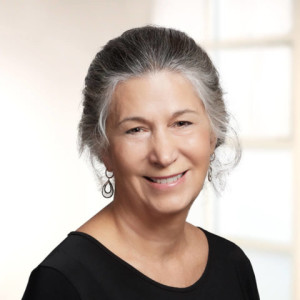
Tuesday Aug 06, 2019
Mary Koloroutis on the Impact Attachment Theory Has on Healthcare: Part 2
Tuesday Aug 06, 2019
Tuesday Aug 06, 2019
Welcome to Attachment Theory in Action! Our podcast is dedicated to therapists, social workers, counselors and psychologists who are working with clients from an attachment-based perspective. Interviews are conducted with individuals who are doing clinical work as well as leading attachment theory researchers.
Karen Buckwalter welcomes Mary Koloroutis, CEO of Creative Healthcare Management and Board Member of The Knowledge Center, for part two of their discussion on the impact Attachment Theory can and does have on healthcare.
Mary has spent more than four decades advancing relationship-based cultures in health care organizations. She partners with clients to identify and maximize the strengths and capacities of teams and whole systems. The results speak for themselves: measurable improvement including widespread alignment with core values and principles.
Mary has been instrumental in the creation of numerous highly successful programs, including Re-Igniting the Spirit of Caring, adopted by leading health care systems worldwide. She is a co-creator, author, and editor of the Relationship-Based Care series of books and workshops. Her belief in the importance of patient-clinician attunement led to the development of the See Me as a Person workshop and book co-created with psychologist Michael Trout. Most recently, Mary is a contributing author and co-editor of Advancing Relationship-Based Cultures.
